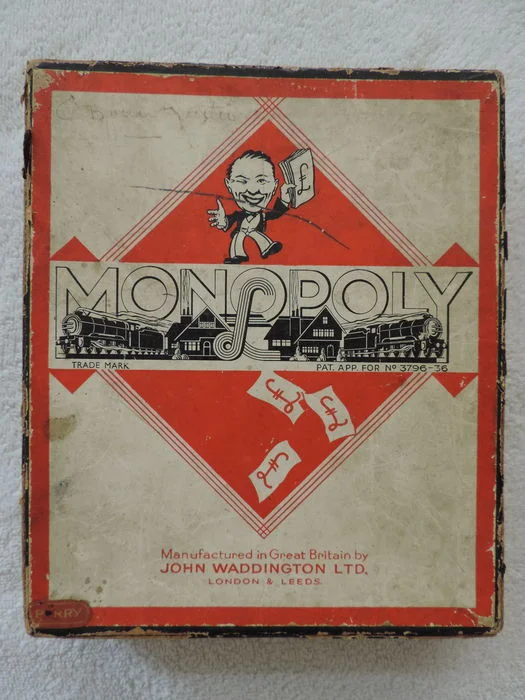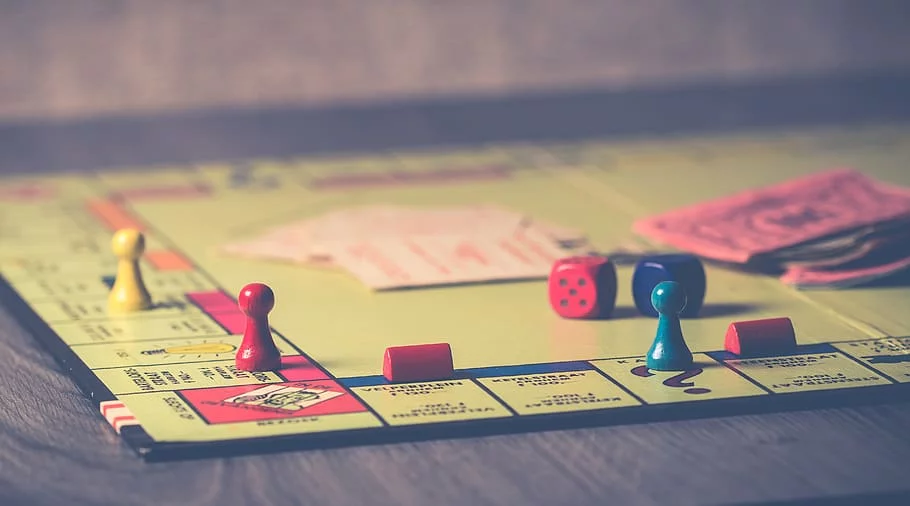At first glance, it seems that there can be nothing in common between the popular board game and the British intelligence services during the Second World War. We checked whether the intelligence officers actually used Monopoly in their operation.
We were not able to find many references to this story on the Russian-language Internet. The story of how play sets were used to help British prisoners in German camps, published in the magazine “School of Life” in 2011. Nine years later about this mentioned in the material of the Ogonyok magazine dedicated to the history of Monopoly. And although the game was indeed very popular during the war (prisoners of concentration camps even created their versions "Monopolies"), it is very difficult to believe in its use by the intelligence services.
During the war, British military and intelligence officials were thinking about how to solve an important problem: it was necessary to rescue fellow soldiers who had been captured by the Nazis. There were very few ways to transfer anything to the camp, one of them was to take advantage of the fact that Germany allowed the transfer of humanitarian supplies to prisoners of war. The Red Cross and other charitable organizations could deliver such goods, and among the items that were allowed to be included in the package were “games and entertainment.” The scouts managed to develop a very unusual plan.
The first Monopoly was released in the United States in 1935. At the same time, the license to release the game in the UK was received by John Waddington Ltd., with which the British intelligence services began to work during the war. By approval Debbie Hall from the University of Oxford, only a few companies at that time had the technology to print maps on silk, although for military and intelligence purposes they are much better suited than paper: they do not rustle, do not get wet in water and are much more durable. The British publishers of Monopoly had such a competitive advantage, which attracted the attention of the British authorities.

Phil Orbans in his book about the history of Monopoly writes, that small recesses were cut out on the still unfinished playing fields, miniature compasses, tiny files and plans for escaping from the camp where a particular specimen was sent were hidden there, and then the recesses were sealed. Silk printing was used to create plans and maps. In addition, real money was placed in the box mixed with game currency. Then the boxes through fictitious charities were transported to the camps. The story told by Orbans confirms and Victor Watson - director of John Waddington Ltd. during the war years.
Before departure, British pilots were instructed: if you see a box of Monopoly among the humanitarian aid sent, pay attention to the Free Parking playing field. If there is a red dot on it, then you can find escape tools inside. Afterwards, the box had to be destroyed so that the enemy would not reveal the special operation. By estimates According to some historians, several thousand prisoners of war were able to escape thanks to Monopoly.
Is it true
- https://www.snopes.com/fact-check/monopoly-games-escape-kits/
- P. Orbanes. The Game Makers: The Story of Parker Brothers from Tiddledy Winks to Trivial Pursuit
- https://www.mentalfloss.com/article/17480/how-historys-most-popular-board-game-helped-defend-free-world
If you find a spelling or grammatical error, please let us know by highlighting the error text and clicking Ctrl+Enter.







